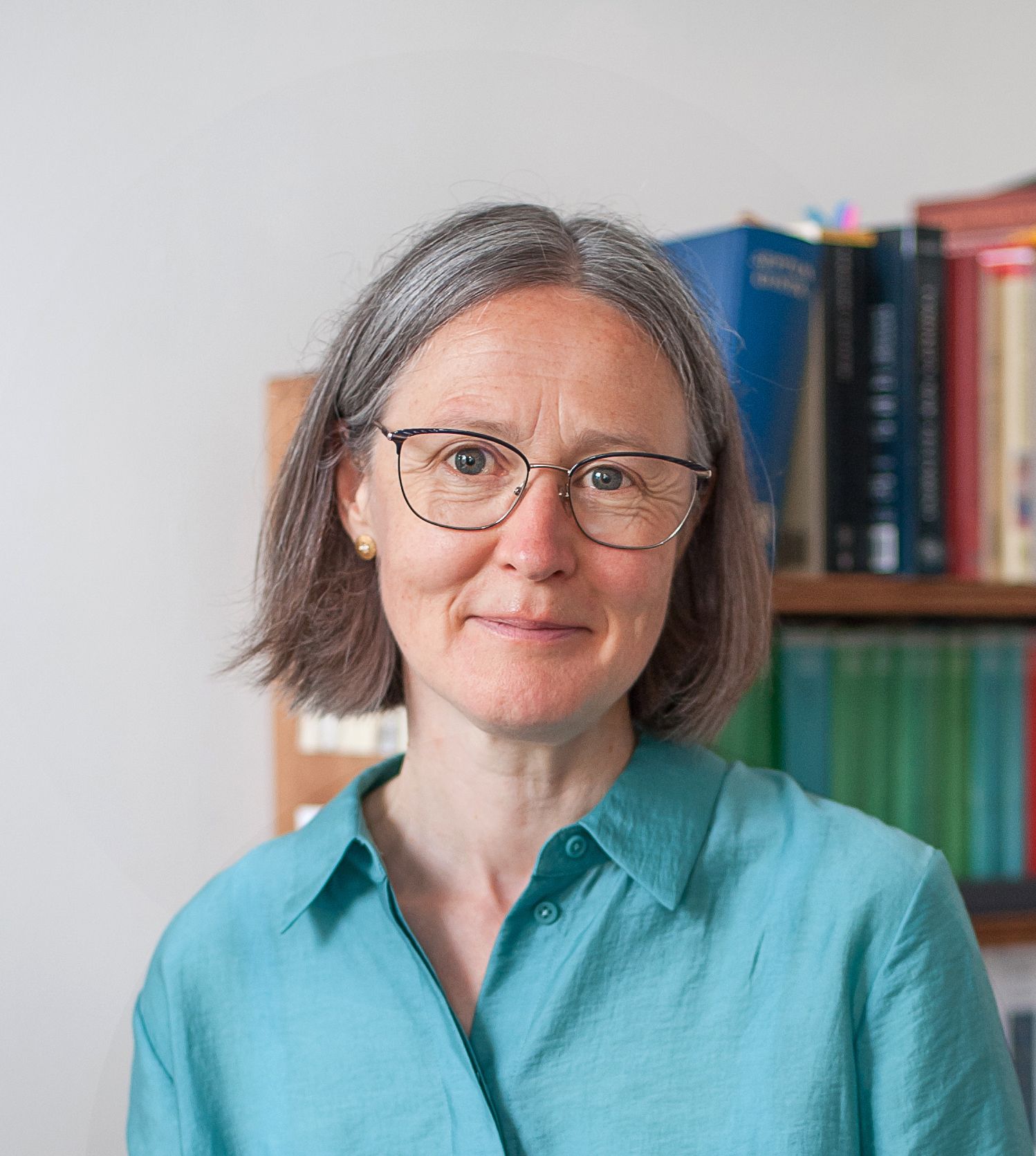Teresa Morgan, 1987
"From the beginning we had not just female contemporaries but teachers, role models, and referees"

Teresa read classics at Clare and returned to write a PhD in ancient history. For several years she worked as a freelance violin and viola player, and she is an Anglican priest. After many years as Professor of Graeco-Roman history and a Fellow and Tutor at Oriel College, Oxford, she is now the McDonald Agape Professor of New Testament and Early Christianity at Yale
Who was your greatest Clare influence and why?
Dr. Dorothy Thompson FBA was a brilliant and generous supervisor, a wonderful historian who took my fledgling efforts to write history seriously and helped me explore the kind of historian I wanted to become. She was (and is) a Fellow of Girton, who had been offered a lectureship at Clare, with a Fellow’s privileges, in 1974 as part of the college’s effort to diversify its senior common room. Not all colleges did this when they went mixed, and it made a great difference to women students that Clare did: from the beginning we had not just female contemporaries but teachers, role models, and referees.
Teresa's Story
I applied to Clare because of its academic reputation and reputation for music. When I arrived, my tutor asked which I intended to focus on, and I said firmly, both. I joined the chamber music awards scheme, and most of my undergraduate friends were musicians, some of whom are still among my closest friends. The music scene was hugely dynamic and varied, and I honed skills of performance and communication which still stand me in good stead.
Among my contemporaries (I discovered later) I was known for two eccentricities: a framed picture and a china tea set. At the end of our first year, a group of us carried the tea set across the road from Thirkill Court into the gardens and – highly illegally – had tea and cake on the lawn. I loved the gardens and spent a lot of time wandering around and looking up the names of plants, and got to know the then head gardener.
The second half of my BA was badly affected by a serious accident. Colleges were not organized as they are now to accommodate unusual circumstances, but the college did what it could. I sat my final exams (mainly lying on the floor) in the Senior Tutor’s ante-room. Unfortunately he was seeing students for end-of-year reports, so every ten minutes a student would put his or her head round the door, see me and apologize, and I would wave them through to the inner office. It taught me a swift lesson in concentration. Those years also taught me to live and thrive with a degree of disability, and I have huge admiration for what some of my students achieve in the face of much bigger challenges.
I found my undergraduate course a bit frustrating: I had hoped it would be so much more exciting and challenging than school, and it wasn’t always. So I graduated and went to music college in London, but I missed academic work, and after a year I returned to Clare as a graduate student.
The next three years were very different. I loved the freedom of writing a PhD, and my social life was more in London than Cambridge. Clare, though, had excellent graduate accommodation, and gave me a flat in St. Regis, where I packed the fire escape with potted plants. The bed-sitting-room was so full of books that two students coming for a supervision filled all the remaining space. And one March evening, the Master of St. John’s knocked on the door to tell me I had been elected to a JRF. The rest is . . . well, a lot of history, theology, writing, teaching, and broadcasting. As the early Greek poet and politician Solon of Athens said, ‘I grow old always learning many things.’
For six years Clare helped me to lay the foundations of my working life, and I am enormously grateful for the time I spent there, in absorbed solitude and good company.